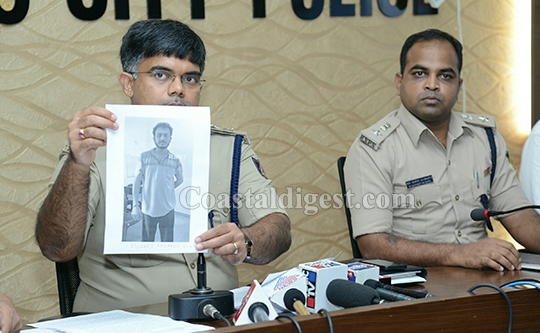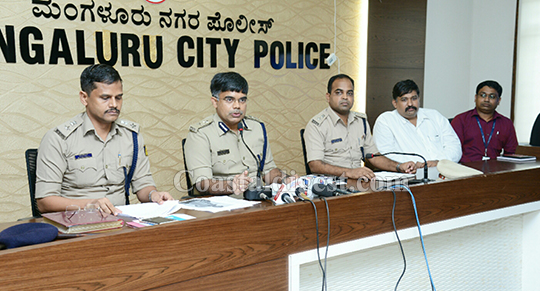Mangaluru, Aug 3: The family members of Richard Marian Lazrath, a Mangaluru resident, who was rescued within a couple of days after his abduction in Rajasthan-Uttar Pradesh border, have thanked Minister for Food and Civil Supplies U T Khader and city police for their timely effort.

The city police with assistance and cooperation from their counterparts in Rajasthan and Uttar Pradesh are now hunting for the abductors of Mr Lazarus who was kidnapped by the gang from Bharatpur in Rajasthan on July 30 and rescued on August 1.
It is learnt that following an internet call that four generators are available at Bharathpura in Rajastan at low rate, Arun D'Souza had sent his assistant Mr Mr Lazrath to purchase the generator on July 28. He has been carrying out this business deal the last two months.
Mr Lazrath reached Bharathpura on July 30. The man who had promised to give the generator took him to an unknown place, called Arun and demanded Rs 10 lakh to release Mr Lazrath safely. Arun, with the help of Youth Congress leaders Prakash Pinto Kerebail and Pavan Raj Kolya appraised U T Khader of the situation.
The minister immediately spoke to City Police Commissioner M Chandra Sekhar, who contacted IGP of Bharathpur, Alok Vasista. A team of police personnel from Mangaluru reached the location on August 1, and with the help of IGP, traced the phone location of Mr Lazrath. The location showed Basthan, a place bordering UP and Rajasthan.
When police searched Basthan, they were able to nab a local gangster Ijaz and two others of his Mubarik gang'. However, Mr Lazrath was not in their possession. When the news of arrest of Mubarik gang spread, the actual abductors panicked and dumped the Mangaluru youth at Goverdhan and fled the place.
Mr Chandra Sekhar told media persons on Wednesday that the after police team started raiding various gangs, the gang that had kidnapped Mr Lazrath had shifted him to seven places in and around Bharathpura and Mathura. The police have credible information on the gang and are confident of arresting them at the earliest.
It is learnt that Lazrath was tied in a field and was allegedly assaulted by the gang. According to Lazrath, 12 persons were in the gang that had kidnapped him.
The top cop called upon the public to be careful before making any business deal after getting a call from unknown persons. Such incidents are common in Bharathpur, and on border of Mathura. Earlier, the modus operandi was that the gang would call rich influential business men on the pretext of selling gold bricks at cheap rate and later abduct them and demand money for their release.
The city police commissioner said that a team of police officers with ASI Vijayraj and Head Constable Mohan are in Rajasthan with Richard Lazrath and another team has left for Rajasthan. He thanked the support of Bharathpur zone IGP Alok Vasishta, Agra Zone IGP Durgacharan Mishra for their support in cracking the case.
Prakash Pinto Kerebail, who is with the police team from Mangaluru, has thanked the timely intervention of the minister, which motivated the police to expedite the rescue operation. He also thanked City Police Commissioner M Chandra Sekhar, DCP Shantharaj, ACP Shruthi and Bharatpura IG.








Comments
Khader bhai u r the man... Disagreeing person here is not a man :D
Khader Bhai rocking........!!!
Add new comment